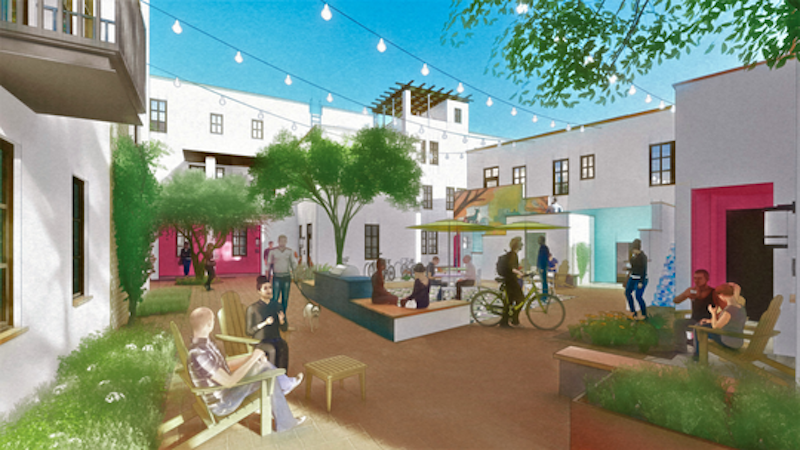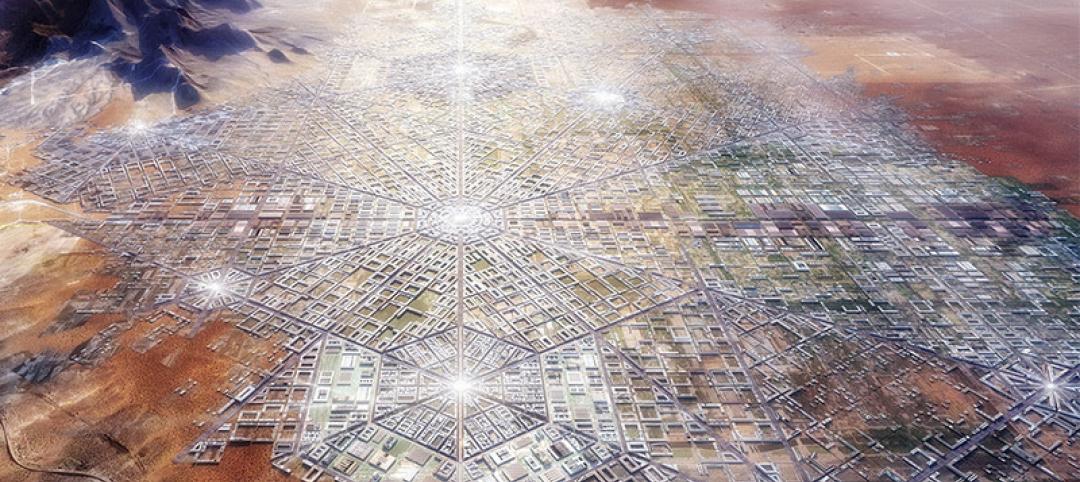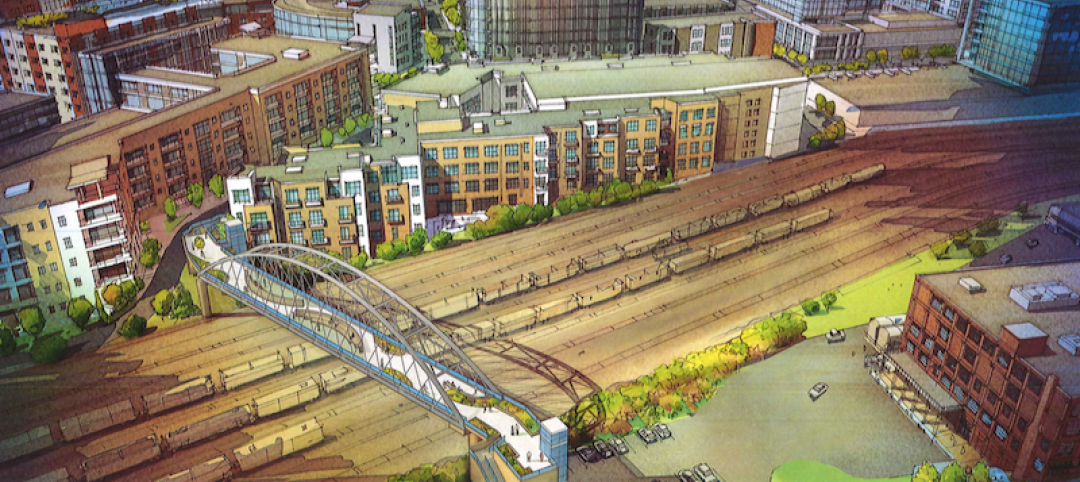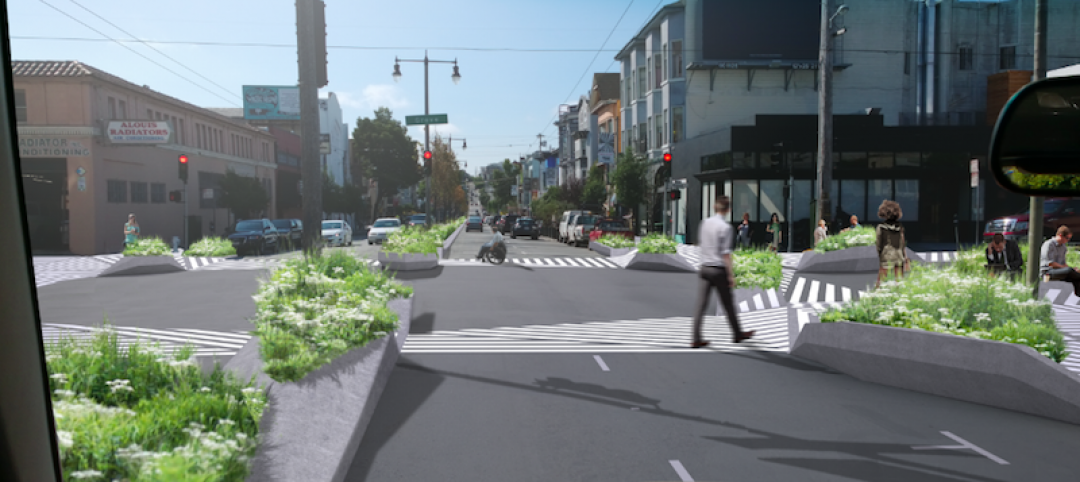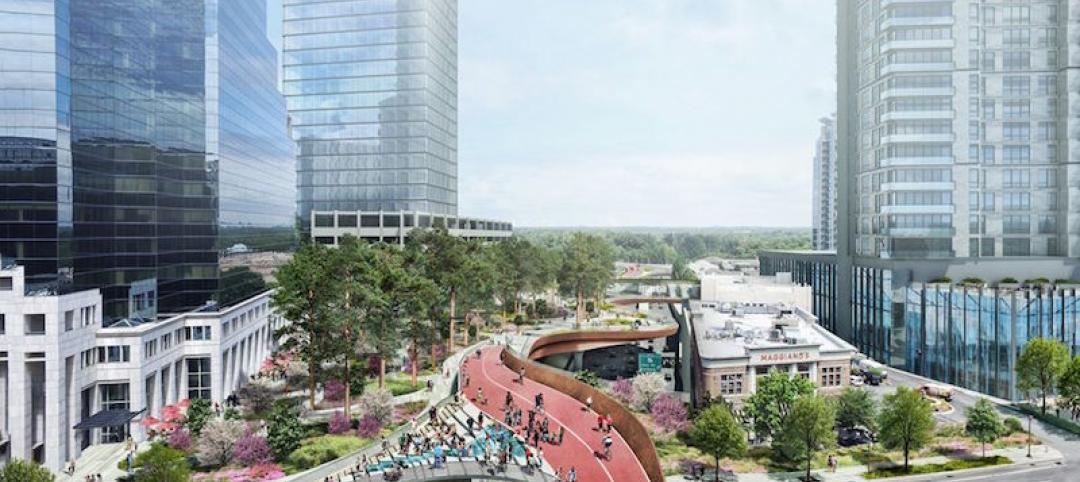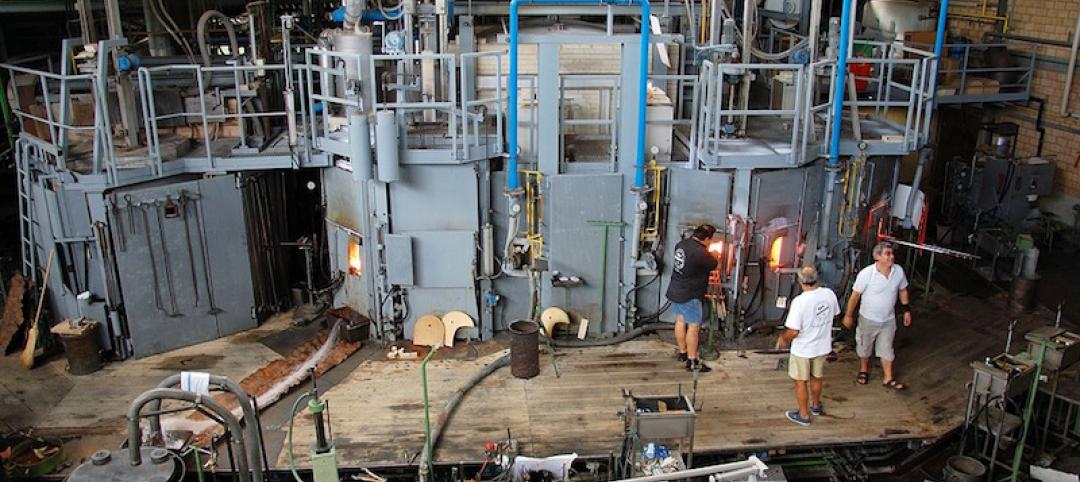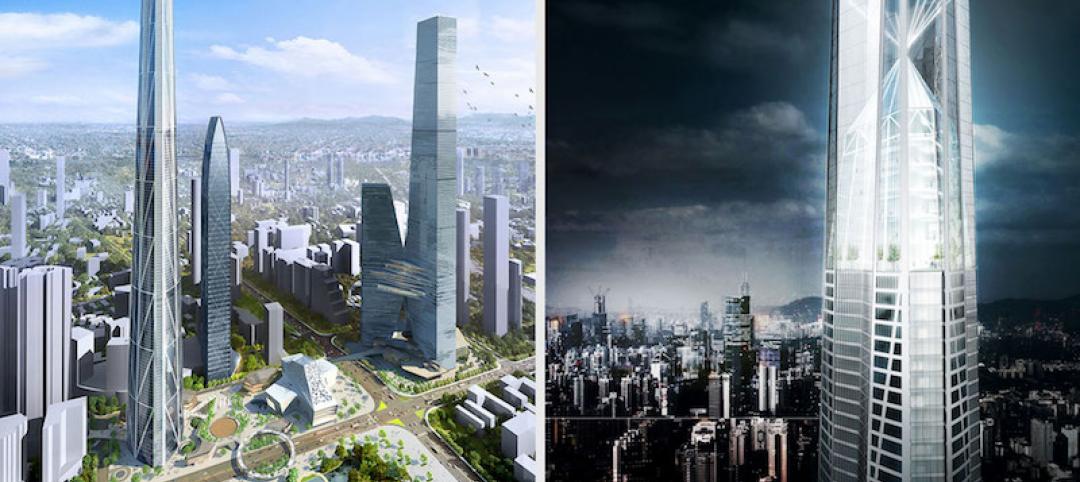Culdesac, a developer that specializes in building car-free neighborhoods from scratch, operates with a key insight in mind: the way we move defines the way we live. And because how we move is changing, thanks to things like ridesharing, the way we live should change as well.
As such, Culdesac Tempe, currently under construction on a 16-acre site in Tempe, Ariz., will be the first car-free neighborhood built from scratch in the United States, according to the developer. The $140 million project will provide 636 apartments for approximately 1,000 residents, with space for zero private cars. That’s right, if you want to live in Culdesac Tempe, you will need to leave your wheels behind. The neighborhood’s one small mini-lot will be stocked with hourly rentable car-sharing, such as GetAround, Turo, or Zipcar, and the perimeter of the neighborhood will be stippled with rideshare pick-up zones.
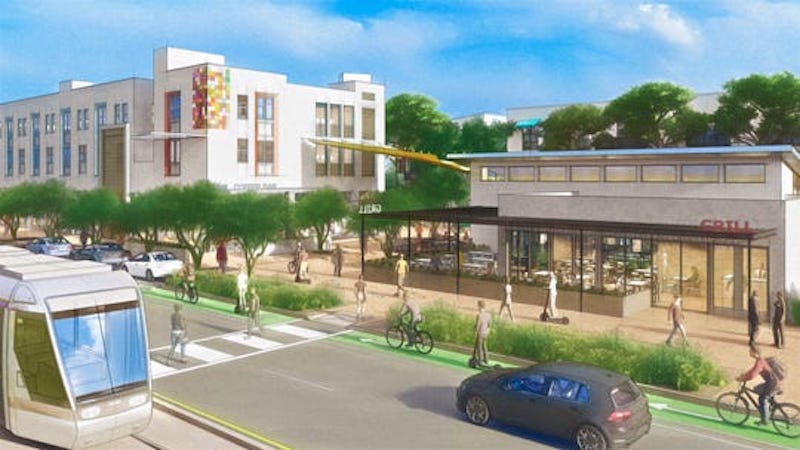
Space that is typically set aside for streets and parking lots will instead be used for acres of greenspace, courtyards, and shops. Not having to create a maze of pavement for vehicles means more than half of the land area will be covered in landscaping and greenery, a ratio not seen in urban developments.
See Also: Redefining lost urban spaces: 5 ways to turn a laneway into a “lanescape”
But Culdesac Tempe doesn’t plan on leaving its residents stranded without any transportation besides their own two feet. The neighborhood will bring together services like ridesharing, shared bikes and electric scooters, same day grocery delivery, and an on-site light rail station that connects to the downtown to mitigate any headaches associated without having a private vehicle. The neighborhood will also feature a pool, a dog park, and a gym.
Another interesting idea Culdesac Tempe will be trying looks to reimagine the guest room. Instead of private guest rooms, which often times aren’t even used, residents will be able to put up friends in bookable guest suites strategically placed throughout the neighborhood.
Culdesac Tempe is slated to launch in late 2020.
Related Stories
Urban Planning | Oct 14, 2016
Architecture firm proposes a ‘Border City’ between the United States and Mexico
The city would be situated around New Mexico, Texas, and Chihuahua.
Urban Planning | Oct 3, 2016
A pedestrian bridge linking two of Nashville’s highest-profile neighborhoods is making progress
The project has stalled since being proposed two years ago by former Mayor Karl Dean.
Urban Planning | Sep 20, 2016
Can redesigning crosswalks make cities safer?
A proposal from Ogrydziak Prillinger Architects redesigns San Francisco’s crosswalks to make them more park-like, changing the way cars and pedestrians interact.
Steel Buildings | Sep 15, 2016
New York’s Hudson Yards to feature 16-story staircase sculpture
The installation is designed by British architect Thomas Heatherwick and will be the centerpiece of the $200 million plaza project
Urban Planning | Sep 12, 2016
An Atlanta business group proposes a ‘floating’ park over a busy highway
The half-mile thoroughfare would connect to surrounding streets and companies.
Sustainability | Sep 7, 2016
New plans call for hundreds of thousands of British homes to be heated by factory machines
An expansion of ‘heat networks’ is viewed as a possible means for Britain to accomplish its goal of slashing carbon emissions by 2050.
High-rise Construction | Sep 7, 2016
Shenzhen Kingkey Group submits re-planning package for what could become China’s tallest tower
The high-rise, H700 Shenzhen Tower, is one of a group of towers being built in Shenzhen’s Caiwuwei financial and commercial area.
Building Team | Sep 6, 2016
Letting your resource take center stage: A guide to thoughtful site selection for interpretive centers
Thoughtful site selection is never about one factor, but rather a confluence of several components that ultimately present trade-offs for the owner.
Urban Planning | Jul 19, 2016
New game challenges players to create a utopian city block
By treating the neighborhood as a living entity, players of Block’hood take part in the creation, death, and rebirth of their own city blocks
Augmented Reality | Jul 15, 2016
Pokémon Go is helping people discover their cities
While catching them all may be the main goal, the wildly popular mobile game is also leading people to trek to unexplored corners of their cities


